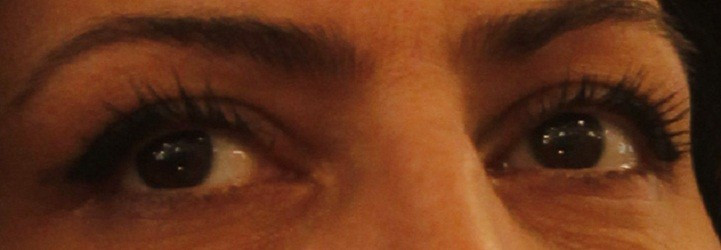Eyes Do Not Hold Lies or Truth, Finds Study

Psychologists have found that eye movements cannot detect lies, according to a new report. Psychologists from the University of Edinburgh, University of Hertfordshire and the University of British Columbia have found that eye movements cannot say if a person is telling a lie or not.
For several years, psychologists have believed that certain eye movements can tell if a person is telling a lie or not. They claim that if a person is looking to the right it means the person is telling a lie. If a person looks to his or her left it means the person is telling the truth. This theory is called Neuro-Linguistic Programming (NLP).
Psychologists conducted three experiments and found that this technique does not actually work.
"A large percentage of the public believes that certain eye movements are a sign of lying, and this idea is even taught in organisational training courses. Our research provides no support for the idea and so suggests that it is time to abandon this approach to detecting deceit," Science Daily quoted Dr Caroline Watt, psychologist at the University of Edinburgh, in a statement .
During the experiment, psychologists asked 32 participants aged between 18 and 56 to perform some tasks. Among the 32, one group was asked to tell lies and the other was asked to tell the truth.
The liar group was asked to take an experimental mobile phone and told to hide it in an office. Then the experimenter asked several questions as to where they had kept the mobile. For eg if a participant said that he or she had kept the phone in the desk drawer then the psychologists asked them to describe what other objects were there in the drawer.
The truth group was asked to take an experimental mobile phone and place it in a certain desk drawer in an office. Then the experimenter asked several questions such as "What did you do inside the office?", "What objects did you see in the desk drawer?", and "What was the layout of the objects in the drawer?"
During this process, psychologists recorded all the eye movements and gestures of both the groups.
The study found that eye movements of participants who were lying or telling the truth did not match the NLP patterning.
In the second study, psychologists conducted an experiment on 50 participants aged between 18 and 73. Among the 50 participants, 25 participants were informed about the NLP eye-movement hypothesis whereas the other 25 did not know about the hypothesis. Both the groups took a lie detection test.
Scientists were stunned to find that both the groups scored the same in the lie detection test.
In the third study, psychologists studied the eye movements of both liars and truth tellers in high profile press conferences. Again, they did not find any significant differences in the eye movement.
Psychologists analysed data of all the three studies and found that the eye movement of a person cannot be used to detect lies.
"The results of the first study revealed no relationship between lying and eye movements, and the second showed that telling people about the claims made by NLP practitioners did not improve their lie detection skills," Science Daily quoted Professor Richard Wiseman, psychologist at the University of Hertfordshire, in a statement.
This article was first published in PLoS ONE journal.
© Copyright IBTimes 2024. All rights reserved.






